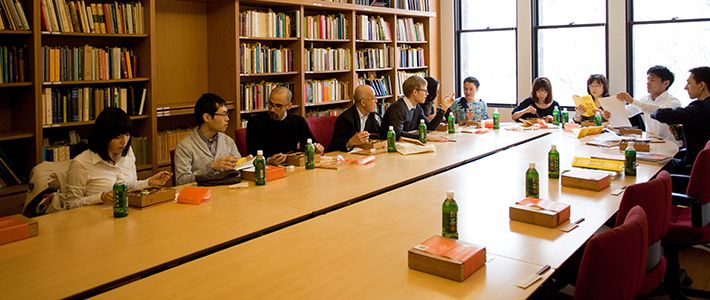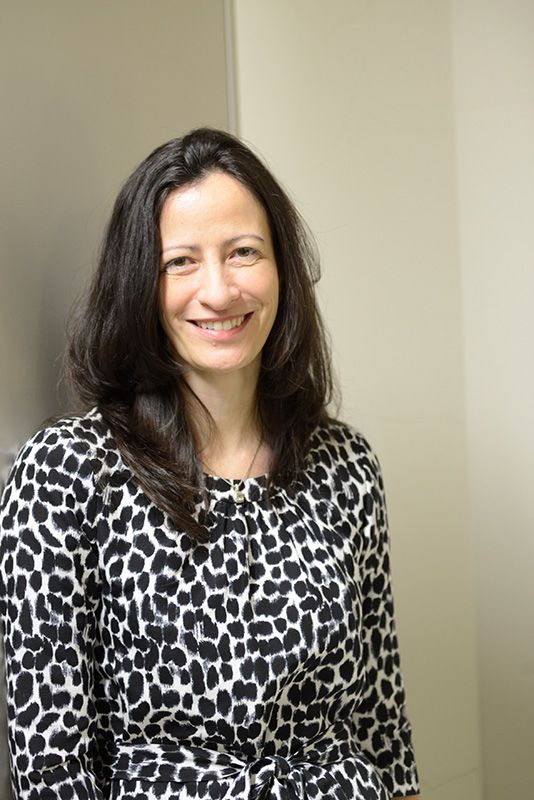
Tokyo International Literary Festival
Japan’s First International Literary Festival
Culture- English
- 日本語
- 简体字
- 繁體字
- Français
- Español
- العربية
- Русский
One of the aims of the festival was to encourage new types of dialogue about books. The panels were set up to bring together people from different countries and diverse areas of the publishing industry. These new encounters between authors, editors, and translators brought out unexpected similarities and new insights, and opened the way to fresh ideas and new approaches.
 Day One sessions at the Hongō Campus of the University of Tokyo (left) and Roppongi Academy Hills. (March 1)
Day One sessions at the Hongō Campus of the University of Tokyo (left) and Roppongi Academy Hills. (March 1)
The international lineup of authors was headed by 2003 Nobel Prize–winner J. M. Coetzee and Junot Díaz, who won a Pulitzer Prize in 2008 for his novel The Brief and Wondrous Life of Oscar Wao. Some of the world’s most talked-about writers took part in the festival, including literary wunderkind Jonathan Safran Foer and genre-defying English author Geoff Dyer. Book designer Chip Kidd, who has worked on the American editions of many Japanese writers’ works, including those of Murakami Haruki, also presented his work, along with some of the most influential editors in English-language publishing, representing periodicals such as Granta and the New Yorker. Panelists swapped ideas and opinions on the issues facing publishers, writers, and editors around the world.
 Day Two sessions at the Rainy Day Bookstore & Cafe (left) and Genron Cafe in Gotanda. (March 2)
Day Two sessions at the Rainy Day Bookstore & Cafe (left) and Genron Cafe in Gotanda. (March 2)
Among those taking part from Japan were Akutagawa Prize–winners Ikezawa Natsuki, Wataya Risa, Hirano Keiichirō, and Kawakami Mieko, as well as popular writers such as Kakuta Mitsuyo and Furukawa Hideo. Shibata Motoyuki and Tokō Kōji, two of Japan’s leading translators and scholars of international literature, acted as moderators throughout the festival, helping to forge connections between participants and ensuring that everything ran smoothly.
 Day Two sessions at the International House of Japan in Roppongi (left) and the Superdeluxe live music house. (March 2)
Day Two sessions at the International House of Japan in Roppongi (left) and the Superdeluxe live music house. (March 2)
For Junot Díaz, the festival provided an opportunity to fulfill a dream when revered manga artist Urasawa Naoki agreed to take part. The two writers engaged in a lively dialogue, the rapport between them unmistakable as they discussed genre fiction’s unique ability to address social issues. J. M. Coetzee opened and closed the festival by reading several excerpts from his latest novel, The Childhood of Jesus, still unpublished at the time. Alongside Coetzee on the opening night was Tanikawa Shuntarō, whose work over the past 60 years has made him one of Japan’s most beloved poets.
 Day Three sessions at the Ibuka Memorial Hall, Waseda University (left) and on board the Toden Arakawa line. (March 3).
Day Three sessions at the Ibuka Memorial Hall, Waseda University (left) and on board the Toden Arakawa line. (March 3).
The festival took place in eight different venues across the capital, from the august halls of the University of Tokyo and Waseda University to the glitzy heights of Roppongi Hills, via cozy book cafes and dimly lit music clubs. Ishii Shinji took literature on the move, writing a new story in real time from on board a specially chartered train on the Toden Arakawa line. Video footage was transmitted live to Waseda University, where a discussion featuring Jonathan Safran Foer and Chip Kidd was in session. Ishii arrived at the venue as the conversation was wrapping up, clambering onto the stage clutching the finished story in his hand. Photocopies of the story were handed out to audience members as they left the auditorium, one page at a time. Members of the public were encouraged to talk to each other as they traded pages to get hold of the complete story.
 Deborah Treisman, fiction editor at the "New Yorker," took part as a moderator and panelist.
Deborah Treisman, fiction editor at the "New Yorker," took part as a moderator and panelist.
Deborah Treisman, fiction editor at the New Yorker, who took part in the festival as a panelist and moderator, spoke to Nippon.com about her impressions of the festival: “The wonderful thing has been watching the foreign writers and the Japanese writers interact, and seeing these things happen spontaneously on stage where writers who really didn’t know each other before the festival have been having conversations from different sides of a question and coming together and getting to know each other.
“When we read something, in a sense we are engaging in a conversation with the author of the book. But it’s a one-sided conversation. The author doesn’t respond to our response. The beauty of these festivals is that you get that third element happening. I suspect that for Japanese readers this has been a wonderful surprise.”
Some 2,500 people attended the three days of the festival. There are plans to make the festival an annual event.
(Photographs by Osawa Hisayoshi, Kawamoto Seiya, Okubo Keizo and Kodera Kei. With thanks to the Nippon Foundation.)
literature translation books book fair publishing novel Hirano Keiichirō Wataya Risa Díaz Tokyo International Literary Festival Kawakami Mieko Katsuta Mitsuyo Furukawa Hideo Shibata Motoyuki Toko Koji J. M. Coetzee Junot Diaz Chip Kidd Urasawa Naoki author Deborah Treisman Ikezawa Natsuki